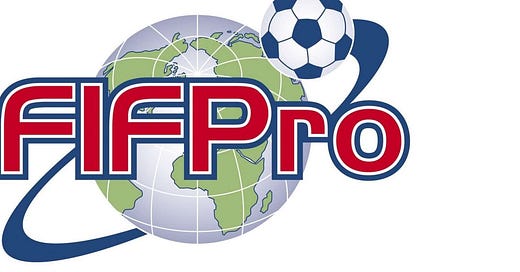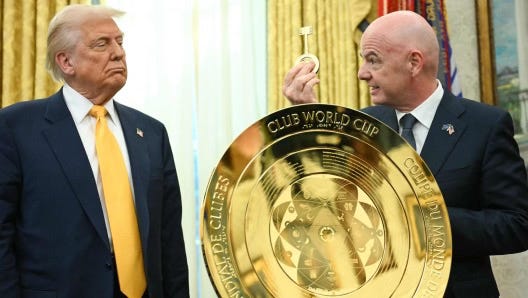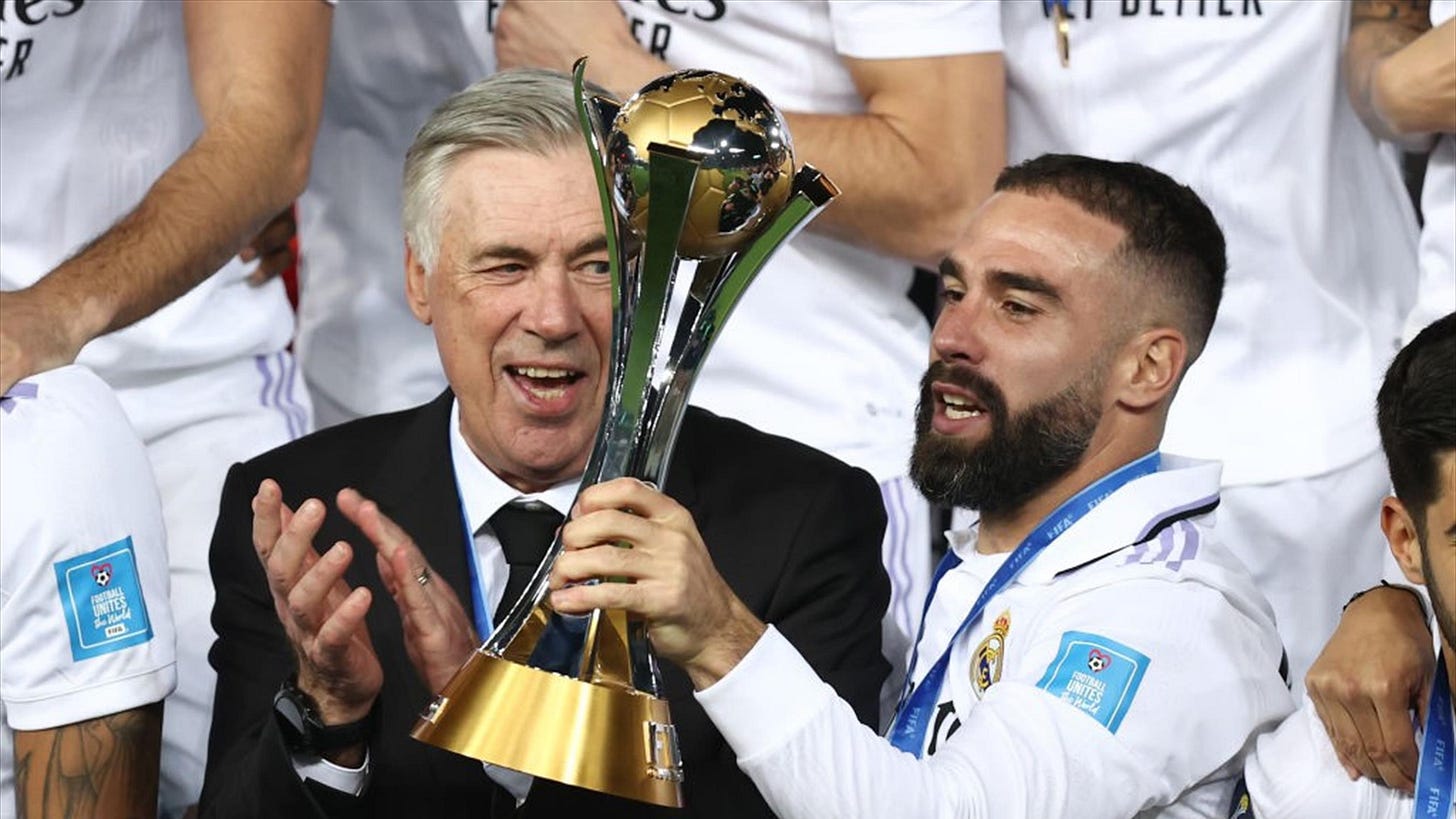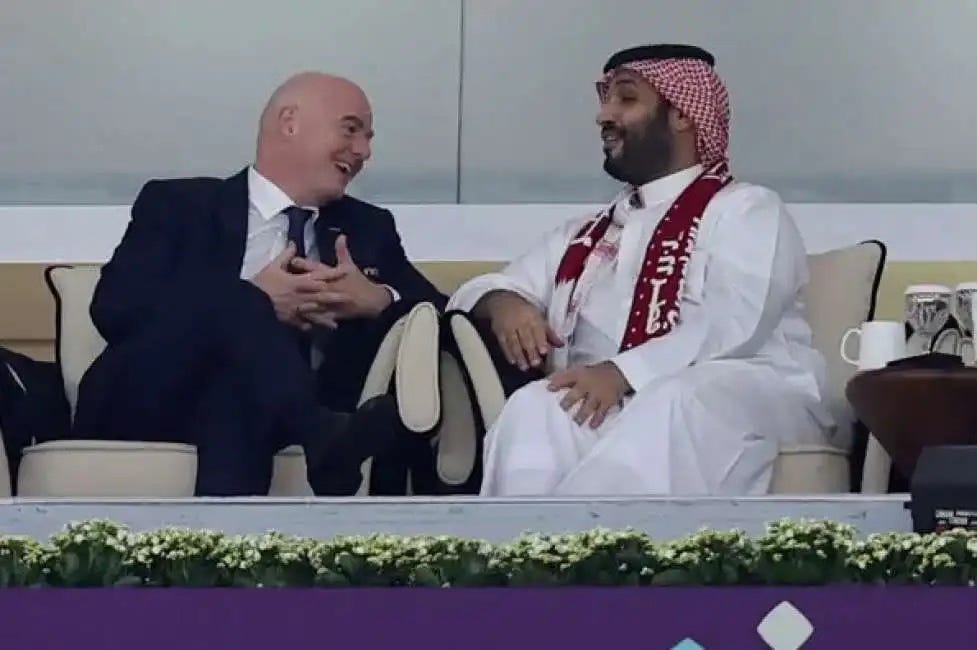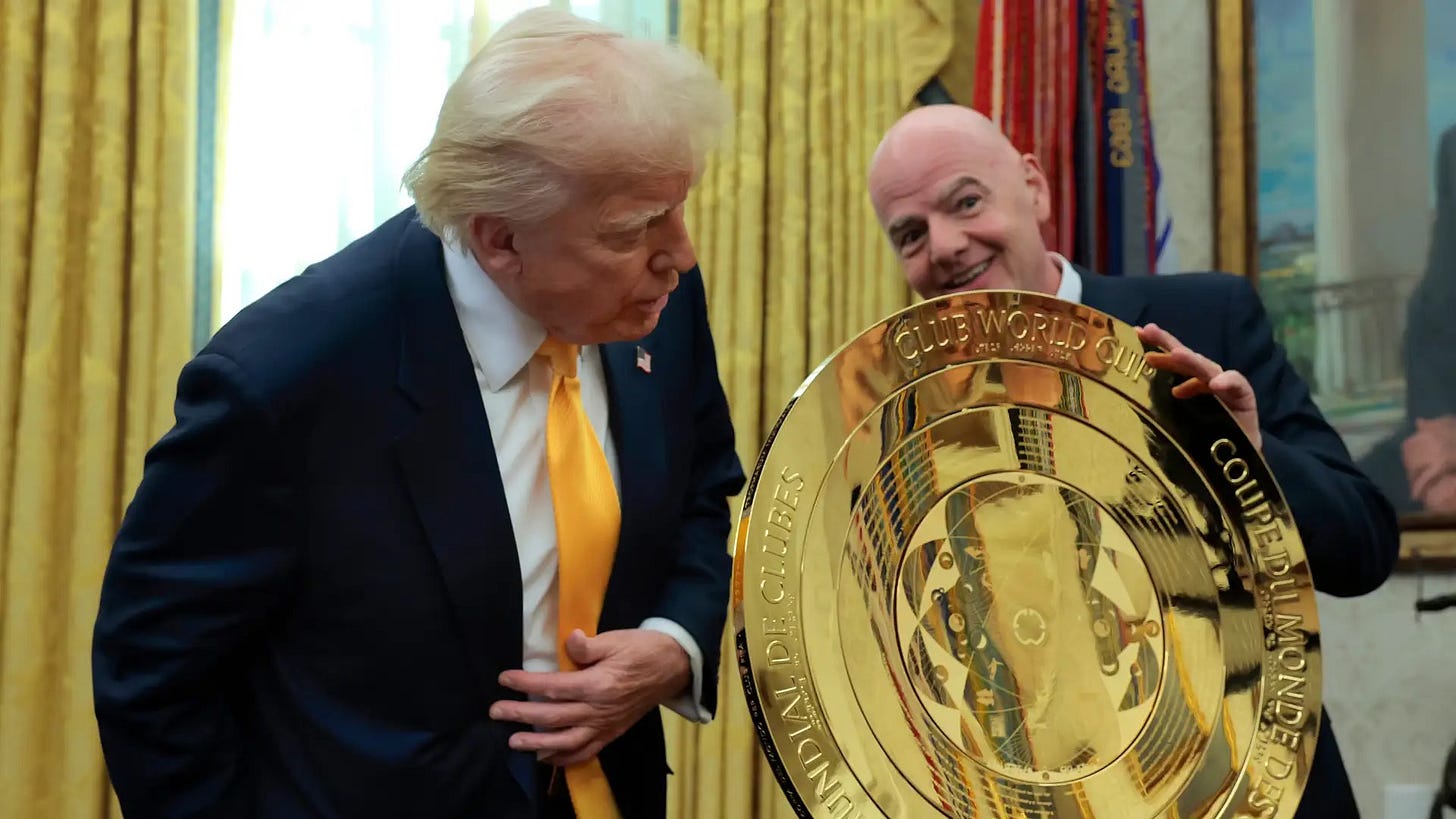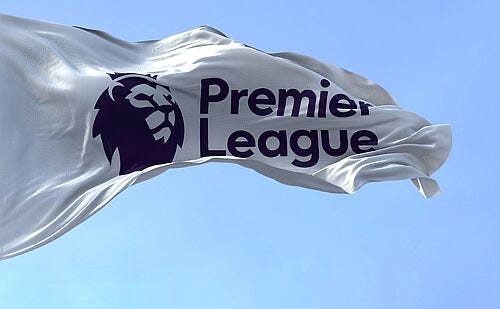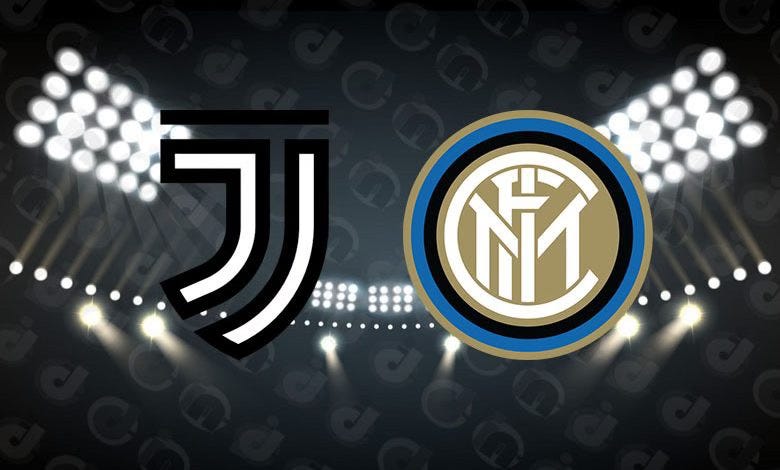Club World Cup, the latest headache: FIFA wasted time with the U.S. Government, and most of the clubs’ earnings will go to taxes and operating costs
After the prize pool was slashed from 3 billion to 1 billion, here comes the unexpected tax sting that will cripple the clubs’ earnings: yet they keep telling us it’s going to be a goldmine…
(Translated into English by Grok)
So, regarding the Club World Cup, touted worldwide as the eighth wonder of the world, here’s how things stand less than two months from the tournament’s kickoff on Saturday, June 14 (though everyone is careful not to spill the beans: as they say in these cases, don’t disturb the driver).
In the summer of 2023, FIFA President Gianni Infantino unexpectedly announced the creation and scheduling of a new tournament, a 32-team Club World Cup, lasting a month just like a national World Cup, to be held in the USA in June-July 2025.
Since Infantino acted alone without consulting or seeking input from all stakeholders—players, leagues, and clubs—heated controversies erupted immediately. The already overloaded calendar exploded with the introduction of this new tournament: there’s just one month between the end of the World Cup and the start of domestic leagues, and as everyone knows, players, entitled to a month’s vacation, would have to return to play without a single day of preparation.
To quell the fires raging everywhere (FIFPro, the global players’ union, and several European leagues, including Italy’s, filed complaints against FIFA with the European Court), Infantino pulled out his trump card: money. He let it slip that the Club World Cup prize pool for clubs would surpass that of the Champions League, recently increased to 2.437 billion, reaching a whopping 3 billion.
Infantino’s plan was to sell the exclusive TV rights to Apple for 4 billion. Apple, however, after crunching the numbers, told Infantino they’d offer 1 billion at most. It was a catastrophe. The FIFA chief pretended to take the blow in stride and announced he’d open bidding for TV rights on every continent. Result: the bids came up empty because, at those prices, no one was interested, especially for a tournament already mired in controversy from its inception.
Top clubs, particularly European ones, got the message: there would be no 3-billion prize pool, and in the best-case scenario, they’d have to settle for half (in reality, it ended up being a third). Real Madrid was the most outspoken, with Ancelotti—later forced into an awkward retraction—stating they were skeptical about participating: “With two friendlies, we earn the same money FIFA wants to give us for playing a month.”
Infantino, struggling even to find sponsors, was desperate nine months out from the tournament. So, he knocked on the door of Saudi Arabia’s Crown Prince Bin Salman, to whom he’d already gifted the 2034 World Cup hosting rights, explained the problem, and asked for help. Result: the Saudi investment company SURJ Sports Investment, part of the government-managed PIF sovereign fund, bought a 10% stake in DAZN for just under 1 billion euros. DAZN then funneled that money to FIFA to secure the Club World Cup broadcasting rights with an agreement for free-to-air transmission worldwide. DAZN, whose viewership is plummeting in France and struggling in Germany and Italy, hopes to patch up its battered image and gain global recognition; FIFA, for its part, narrowly escapes disaster and announces that the prize pool for clubs will be 1 billion dollars, or 960 million euros at the exchange rate. From the 3 billion floated two summers ago, we’re down to 960 million.
Though under the radar, top European clubs—some through the ECA (European Club Association), others individually (like Real Madrid)—expressed their discontent with the reduced prize pool. Real Madrid threatened to pull out, prompting Infantino to quickly devise and publicize a prize distribution plan that, based on certain parameters, allocates the largest share to Real Madrid and progressively less to other “Premium” clubs. The clubs at the bottom of the pyramid get scraps.
But just when everything seemed smoothed over, albeit with minimal satisfaction for the top European clubs, new alarms went off. It turns out (news broke two days ago) that FIFA, having moved too slowly and wasted time in a frantic search for TV and sponsor money, failed to secure any agreement with the U.S. government regarding tax exemptions for participating clubs. As a result, a significant portion of the money each club earns from the tournament will be eaten up by various taxes and operating costs—unlike the 2026 World Cup for national teams, also in the USA, for which FIFA finalized all agreements with the U.S. government long ago. This explains Infantino’s two recent visits to President Trump and the gift of the new trophy presented in the Oval Office: the FIFA boss claims to be optimistic about resolving the issue, but with just 50 days to go, the problem remains unresolved.
As if that weren’t enough, tome U.S. states do not recognize the “double taxation treaties” signed by the U.S. government with other countries to prevent individuals or companies from being taxed twice on the same income by different tax regimes. Some clubs (as revealed by the British newspaper The Guardian) risk having to pay taxes—tens of millions of dollars/euros—on their Club World Cup earnings both in the USA and in their home countries, adding insult to injury. Many clubs are already regretting replacing traditional, equally lucrative, and less demanding summer tours with the World Cup.
In short, though no one says it out loud, the Club World Cup is being born under a bad star. It’s not out of the question that many clubs, seeing the mess, will opt to approach the tournament half-heartedly, limiting the use of their best players and sending them home early to ensure they get their vacation time and have at least two weeks to prepare for the start of the competitive season. As is well known, Europe’s two biggest leagues, the Premier League and La Liga, have refused to delay the start of their seasons, which will begin as scheduled on Saturday, August 16. If Manchester City, Chelsea, Real Madrid, and Atlético Madrid fall behind for participating in the Club World Cup, that’s their problem: they’ll start the season playing their youngsters.
In Italy, however, the Lega has voted to delay the start of the season by a week, beginning on Saturday, August 23, to accommodate Inter and Juventus. This is undoubtedly helpful, but if either club progresses deep into the tournament—reaching the quarterfinals, semifinals, or final—they’ll still find most of their squad unfit to play in the early league matches to avoid injuries or setbacks.
Marotta and Inzaghi have stated and reiterated that Inter will go to the Club World Cup with the intention of going all the way and winning it, which does them credit. However, I imagine they are well aware of the risks Inter (even more than Juventus) would face. Their players are already struggling to stay on their feet today, with two months of the season still to play (and we’re talking about the two most grueling months: the fate of all competitions is decided, and every match is played to the death). Imagine the condition they’d be in boarding a plane to the USA after perhaps playing, just days earlier, the Champions League final or a title-deciding playoff against Napoli. They’d face the FIFA tournament in utterly deplorable physical and mental shape. And anyway: the Club World Cup final, which Marotta and Inzaghi say they want to win, is on Sunday, July 13. The team would disband the next day, after which the players would return home to start their month-long vacation, bringing them back to Appiano Gentile on August 14.
The league starts on August 23: good luck and godspeed.

